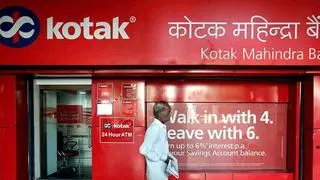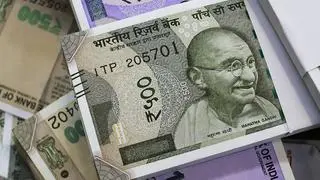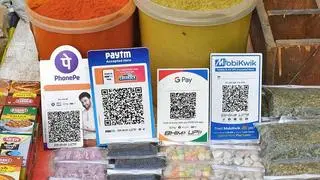The Reserve Bank of India’s recent diktat barring banks from supporting cryptocurrencies could lead to massive illegal trading in these digital currencies in the grey market, according to experts. The central bank, on April 5, asked all regulated entities and banks to stop dealing with individuals and companies associated with cryptocurrencies.
While the crackdown was aimed at the legally registered Indian cryptocurrency exchanges, such as Zebpay, Unocoin and Coinex, among 50 others, trading is still continuing on a large scale in the grey market through peer-to-peer (P2P) channel, which is not only difficult to track but also a huge loss for the Income Tax department.
According to sources, the P2P channel had always existed, but the recent crackdown by the banking regulator has given it a major boost. Currently, there is no data on the amount of trading occurring through this channel since it is untraceable, but industry experts believe it could be 10 times the trading that used to take place on the registered exchanges, and with the recent regulations, it is likely to increase further. A rough estimate by industry player Koinex puts the overall non-trackable, or P2P trade volume, at ₹100 crore daily.
The trading through P2P channel is on the rise as investors are currently not allowed to use their bank accounts to trade in digital currencies such as bitcoin, ripple or ethereum through the exchanges.
Explaining how the P2P channel works, a Gujarat-based crypto expert, who requested anonymity, said that it works exactly like a ‘hawala’ or ‘angadia’ system, where the money is transferred via a network of hawala brokers without actually moving the money.
The OLX of cryptos
Vivek Sancheti, another blockchain expert and investor, said that P2P is like the OLX of cryptos. Further explaining the mechanism, Sancheti said that a person willing to trade in cryptos though the P2P route can create a personal mobile wallet on platforms such as Bitgo.com, or can sign up on platforms such as Localbitcoins.com, and can see interested parties nearby who are also willing to trade.
They can then meet offline and work out a deal. The person selling cryptos gets the cash through an escrow mechanism. To sell cryptos to someone abroad, the trader can use NEFT or IMPS by locking the transaction. The crypto is locked by Localbitcoins.com via a code and will only be released after the other person receives the money. However, banks in both the above cases, have no control on the transaction since it occurs between two individuals.
Rahul Raj, founder of Indian crypto-exchange Koinex, told BusinessLine : “For any exchange to lawfully operate in the ecosystem, it is imperative to partner with a financial institution for INR support. It also makes things easy for auditors and regulators to track and monitor the trading. But in the current scenario, it is a challenge to make INR-crypto-INR transactions. This will lead to a huge black market where people are forced to privately exchange coins for cash.”
Raj further added that dubious intermediaries, or Ponzi schemes in the market, might rob traders of their assets and that has already begun.








Comments
Comments have to be in English, and in full sentences. They cannot be abusive or personal. Please abide by our community guidelines for posting your comments.
We have migrated to a new commenting platform. If you are already a registered user of TheHindu Businessline and logged in, you may continue to engage with our articles. If you do not have an account please register and login to post comments. Users can access their older comments by logging into their accounts on Vuukle.